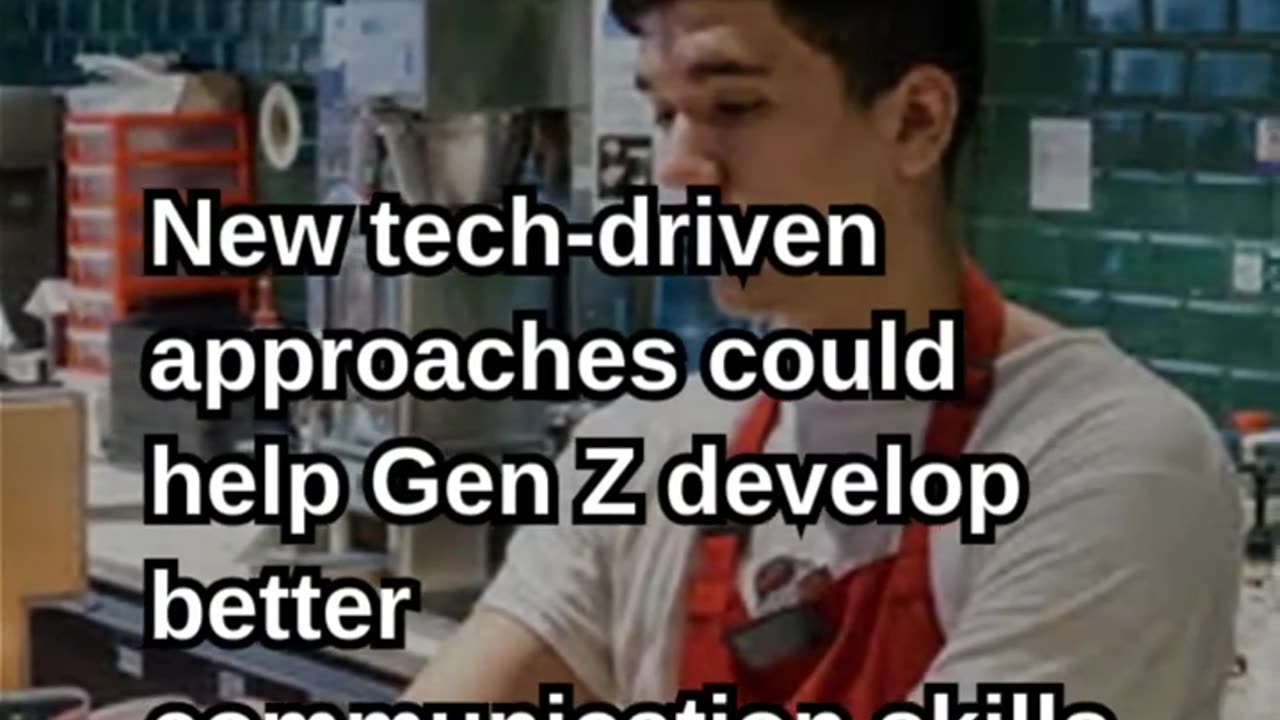Premium Only Content

Can Artificial Intelligence and Virtual Reality
In today’s hyper-digital age, “the Gen Z stare” has become a cultural phenomenon.
Go here to find out what tools we are using each day to be successful in our business.
https://versaaihub.com/resources/
https://versaaihub.com/media-and-entertainment/
https://www.instagram.com/versaaihub/
https://x.com/VersaAIHub
Often associated with blank expressions, minimal engagement, and detached social interaction, it reflects both a coping mechanism and a commentary on modern life. Some see it as a quiet rebellion against constant overstimulation, while others view it as a symptom of digital fatigue, anxiety, or even declining face-to-face communication skills. With Generation Z growing up immersed in smartphones, social media, and streaming platforms, questions are being raised: can emerging technologies like Artificial Intelligence (AI) and Virtual Reality (VR) help address this cultural and psychological shift?
AI offers potential solutions by tailoring digital experiences to individual needs. Intelligent systems can recommend mindful practices, track mental health trends, or create personalized learning and work environments that reduce burnout. AI-powered wellness tools, such as chatbots and mood trackers, can help Gen Z users better understand and manage their emotional states, breaking through the monotony that often leads to the detached “stare.”
Meanwhile, VR provides immersive environments that encourage active engagement rather than passive scrolling. Virtual reality classrooms, therapy sessions, and social spaces can simulate genuine presence and interaction, giving young people opportunities to connect more meaningfully. For instance, VR mindfulness experiences can reduce stress, while immersive simulations can boost empathy and social awareness—helping Gen Z navigate real-world connections more effectively.
Yet, there is debate about whether more technology is the cure or part of the problem. Critics argue that increasing reliance on AI and VR could deepen disconnection, replacing human interactions with artificial ones. Others warn of overexposure, privacy risks, and the potential for addiction. Supporters, however, believe that when used responsibly, these technologies can serve as bridges—enhancing mental wellness and restoring balance in a generation struggling to process information overload.
The question remains: can AI and VR genuinely cure the Gen Z stare, or will they simply reshape it into a new form of digital expression? The answer may lie not in eliminating technology, but in guiding its use toward intentional, mindful, and human-centered experiences. As AI and VR evolve, their impact on Generation Z’s mental and social well-being will continue to shape cultural conversations worldwide.
Go here to find out what tools we are using each day to be successful in our business.
https://versaaihub.com/resources/
https://versaaihub.com/media-and-entertainment/
https://www.instagram.com/versaaihub/
https://x.com/VersaAIHub
#GenZStare #ArtificialIntelligence #VirtualReality #AIandVR #DigitalWellness #GenZCulture #FutureOfTech #MindfulTechnology #DigitalOverload #AIinMentalHealth #VRtherapy #TechAndSociety #GenZMentalHealth #AIForGood #VRForGood #DigitalMindfulness #YouthAndTech #TechWellness #FutureGenerations #DigitalCulture
-
 0:59
0:59
WFH University
14 days agoHumanoid Robot Just Outsmarted Humans
221 -
 5:44:49
5:44:49
Redacted News
10 hours agoTurning the Tide: 9/11 Justice in 2025 — Day 1 with Sen. Ron Johnson, Richard Gage and More
165K74 -
 2:48:00
2:48:00
TheSaltyCracker
8 hours agoYou're Being Hunted ReeEEStream 9-10-25
271K560 -
 13:09:56
13:09:56
LFA TV
21 hours agoBREAKING: CHARLIE KIRK ASSASSINATED - WEDNESDAY 9/10/25
364K125 -
 1:31:08
1:31:08
I_Came_With_Fire_Podcast
7 hours agoCheck Fire: God Bless Charlie Kirk
78.6K22 -
 1:13:35
1:13:35
Glenn Greenwald
9 hours agoCharlie Kirk Assassinated; NATO Alleges Russian Drones Flew Over Poland, and More | SYSTEM UPDATE #512
276K288 -
 1:46:28
1:46:28
Badlands Media
23 hours agoAltered State S3 Ep. 45: The Assassination of Charlie Kirk
151K27 -
 8:56:53
8:56:53
Dr Disrespect
16 hours ago🔴LIVE - DR DISRESPECT - THE FINALS - NEW SEASON 8 LAUNCH EVENT W/ THE SHOTTY BOYS
275K10 -
 LIVE
LIVE
RealAmericasVoice
3 days agoHOME OF REAL NEWS
2,981 watching -
 27:00
27:00
BonginoReport
10 hours agoRest In Peace Charlie Kirk - Nightly Scroll w/ Hayley Caronia (Ep.131) - 09/10/2025
257K400